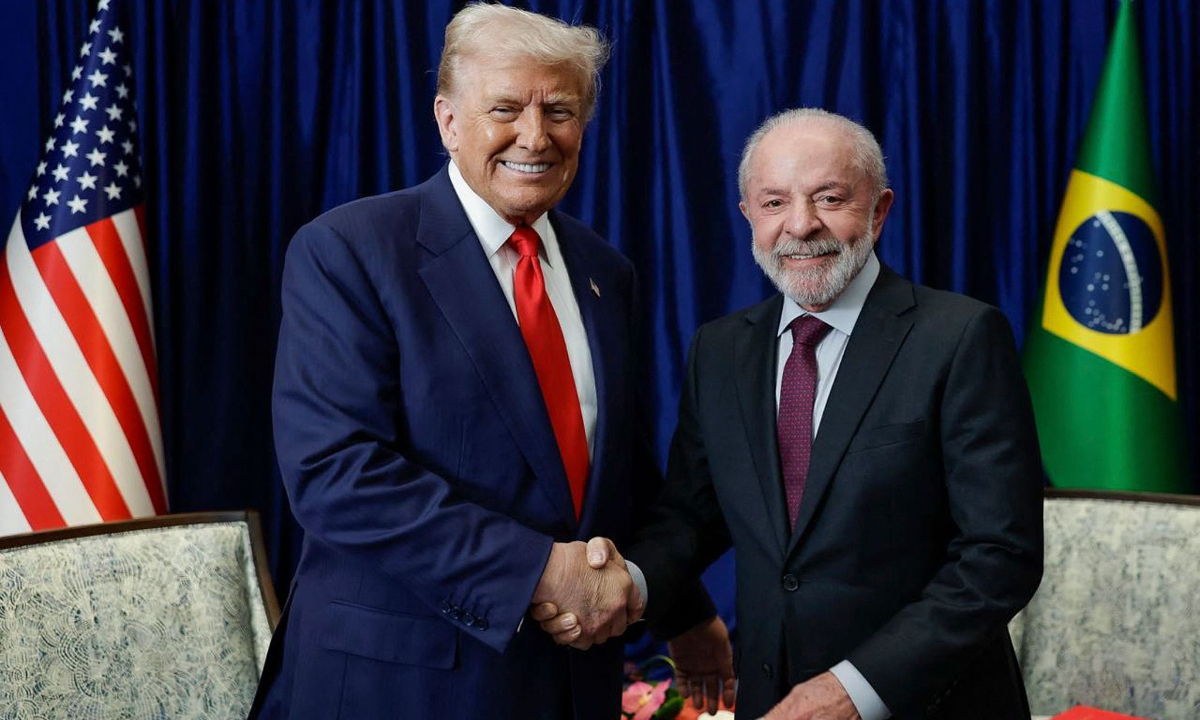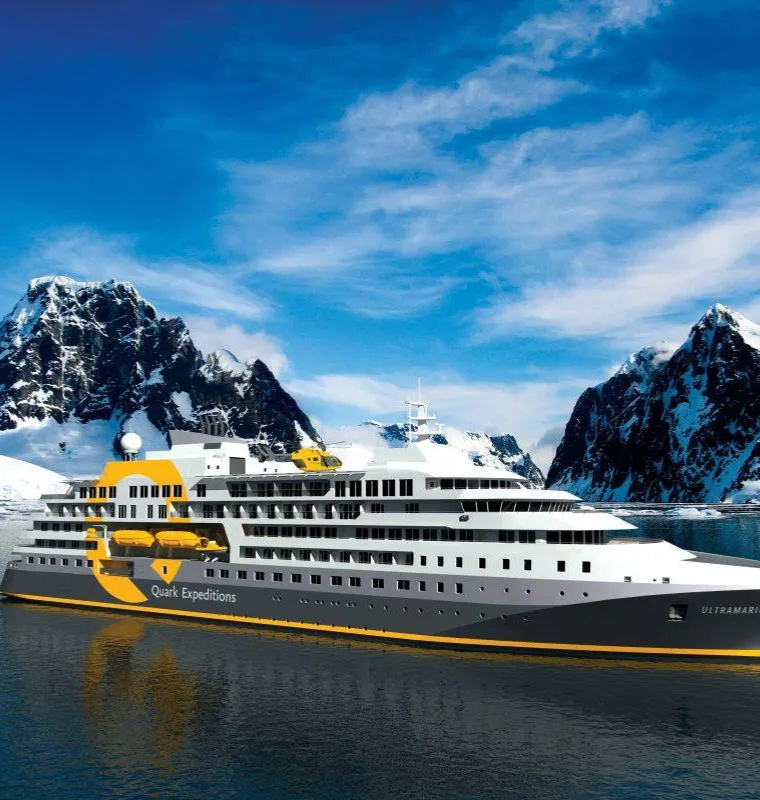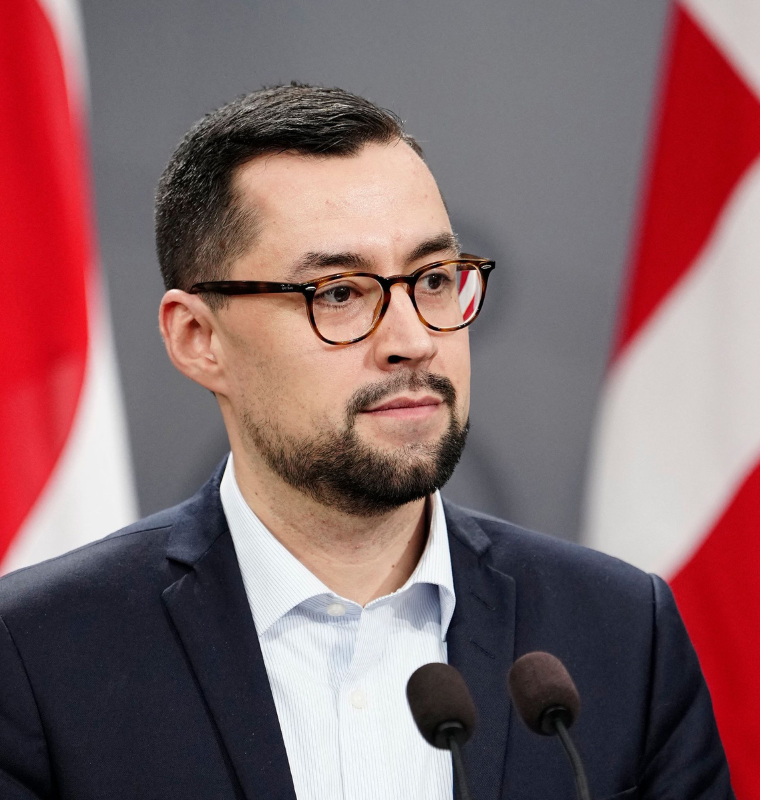Brazil and U.S. Move to Resolve Tariff Tensions After Trump-Lula Meeting in Malaysia
Brazil and U.S. Move to Resolve Tariff Tensions After Trump-Lula Meeting in Malaysia
By
David Goldfarb
Last updated:
October 27, 2025
First Published:
November 30, 2025

Photo: Global Times
Brazil and the United States are taking steps toward easing one of the most contentious trade rifts in recent years. Brazilian President Luiz Inácio Lula da Silva announced on Sunday that his meeting with U.S. President Donald Trump was “productive and positive,” and that both countries’ economic teams would begin working “immediately” to resolve the ongoing tariff dispute.
The two leaders met on the sidelines of the ASEAN Summit in Kuala Lumpur, Malaysia, marking their first formal engagement since the U.S. sharply raised tariffs on Brazilian imports. In August, the Trump administration increased tariffs on most Brazilian goods to 50% from the previous 10%, a move that rattled exporters and strained relations between the Western Hemisphere’s largest economies.
A Path Toward Resolution
Lula confirmed that both sides agreed to begin “immediate negotiations” aimed at reducing the tariffs and lifting sanctions placed on several Brazilian officials. “We are determined to find a constructive solution that benefits both nations,” Lula said in a statement shared on X (formerly Twitter).
U.S. President Donald Trump echoed a similar sentiment before the meeting, noting that “some pretty good deals for both countries” could emerge from the talks. His administration’s initial tariff hike, however, had been politically charged. Trump previously linked the decision to what he described as a “witch hunt” against former Brazilian President Jair Bolsonaro, who was convicted of attempting a coup.
The United States had also imposed sanctions on key Brazilian figures, including Supreme Court Justice Alexandre de Moraes, who oversaw Bolsonaro’s trial.
Negotiation Framework and Goals
According to Brazil’s Foreign Minister Mauro Vieira, the two governments have already established a negotiation timeline. A Brazilian delegation, including trade and finance officials, held preliminary discussions with U.S. Treasury Secretary Scott Bessent, Secretary of State Marco Rubio, and Trade Representative Jamieson Greer during the summit.
“We will identify the key sectors affected by the tariffs and aim to secure immediate relief where possible,” Vieira told reporters. He also confirmed that Brazil had formally requested that Washington suspend the new tariffs during the negotiation process, though it remains unclear whether the U.S. agreed to that condition.
Vieira expressed optimism that a concrete agreement could be reached “within weeks,” addressing tariff impacts across industries such as agriculture, steel, and energy.
Ripple Effects on Global Trade
The tariff increase has already begun to reshape global trade flows. Higher duties on Brazilian goods—especially beef and coffee, two of the country’s top exports—have disrupted U.S. supply chains and pushed up domestic prices.
Brazil’s beef exports to the U.S. have declined significantly since the August increase, prompting some exporters to reroute shipments through third countries such as Mexico to avoid the tariff burden. Meanwhile, Brazil’s beef sales to China surged 22% year-on-year, according to customs data, making China an even larger market for Brazilian producers.
In September alone, Brazil’s total beef exports—including fresh and processed meat, edible offal, and tallow—generated $1.92 billion in revenue, with volumes reaching 373,867 metric tons, a 49% increase in value and 17% rise in volume compared to the same month last year.
Industry Response and Economic Stakes
Brazil’s meat industry welcomed the recent diplomatic progress. The Brazilian Beef Exporters Association (ABIEC) said the leaders’ meeting represented a “promising step toward restoring competitiveness.”
“The understanding between the two countries can help maintain the global standing of Brazilian beef, ensure predictability for exporters, and potentially reopen more access to the North American market,” ABIEC said in a statement.
Brazil’s coffee exporters also see opportunity in renewed dialogue. Pavel Cardoso, president of the Brazilian Coffee Industry Association (ABIC), emphasized optimism in the long-standing trade relationship: “The partnership between Brazil and the United States has always been mutually beneficial. We believe these talks will strengthen cooperation and stability in the coffee trade.”
A Trade Relationship Worth Saving
Over the past 15 years, the United States has maintained a $410 billion trade surplus with Brazil, underscoring the scale and importance of the economic partnership. While the U.S. remains one of Brazil’s top trading partners, China’s growing role in Latin American trade has added urgency for both Washington and Brasília to stabilize relations.
For now, both sides appear committed to finding a middle ground. With working groups set to begin discussions this week, diplomats and industry leaders are watching closely for signs of progress.
As Lula put it in his post-meeting statement:
“This is not just about tariffs—it’s about rebuilding trust, reopening opportunities, and ensuring fair trade for the future.”
Popular articles
Subscribe to unlock premium content
Snow, Silence, and Splendor

The $60 Million Market for Ultra-Exclusive Executive Pop-Up Experiences

Conquering the Poles in Absolute Luxury

Snow, Silence, and Splendor

The $60 Million Market for Ultra-Exclusive Executive Pop-Up Experiences

Snow, Silence, and Splendor









